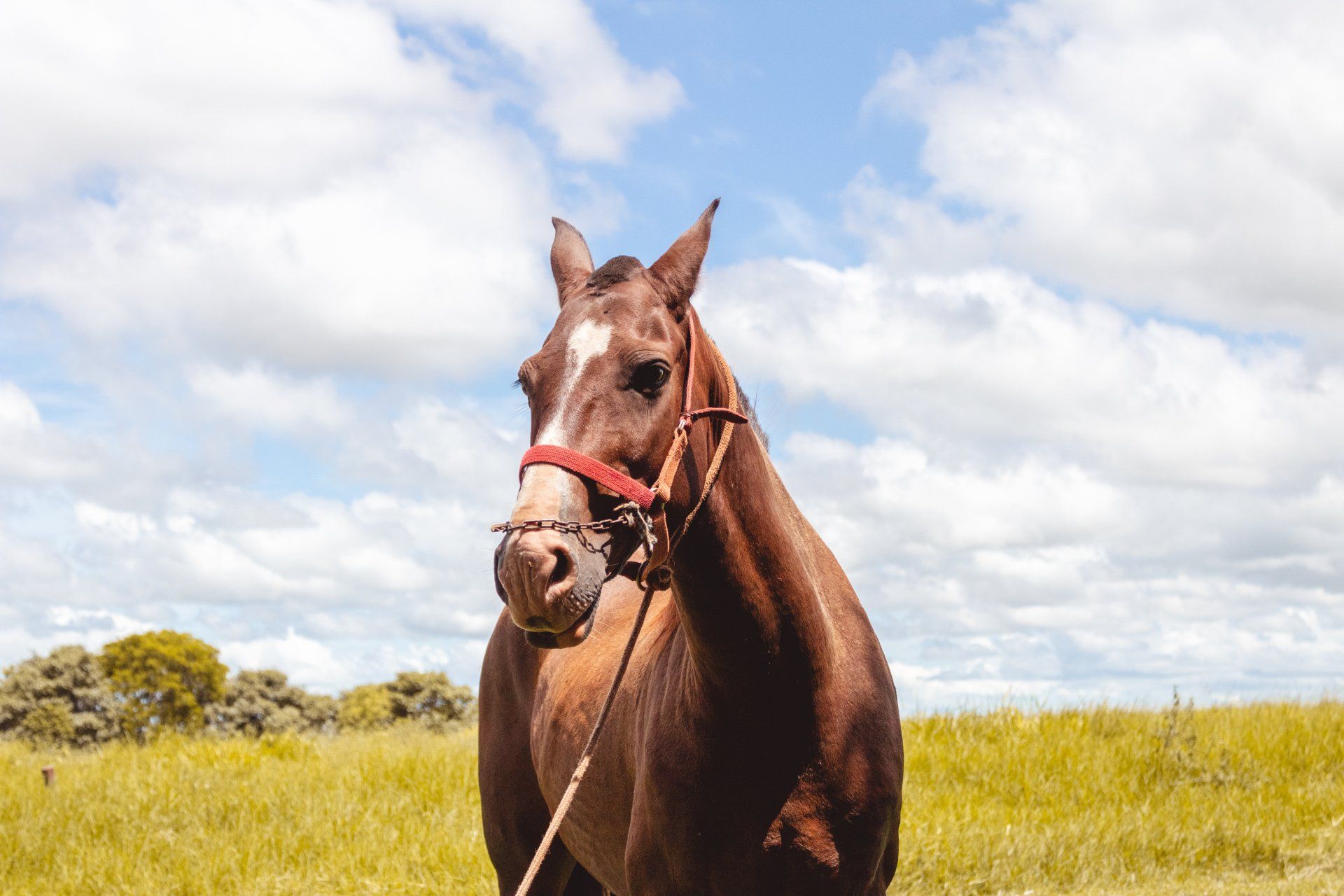Horse Botulism
Botulism in Horses
Written By Dr. Bill Yost
With the recent interest in botulism in horses generated by the article in the Wooster newspaper: The Daily Record (March 24, 2014), I thought it would be of interest to review what I have experienced and learned about botulism. I saw my first case of botulism at least 20 years ago in a Belgian horse. Like many practitioners unacquainted with the disorder, I diagnosed the horse with colic because she was acting as if she was in pain and wanted to lie down a lot. She was listless and was not passing much fecal matter. A second horse on the same farm began showing similar symptoms a day or two after the first horse began with symptoms. Dr. Paul Masters looked at that horse and after consulting with veterinarians at Ohio State concluded that this horse had botulism as did the other horse that I had seen. Both horses ended up dying. Since then, I have seen at least 2 other cases, one as recently as last fall. This diseases is not very frequent, but many horses die from this difficult to treat disease.
Dr. Amy L. Johnson, D.V.M from New Bolton Center, School of Veterinary Medicine at U Penn presented a session on botulism at the 2013 NAVC in Orlando FL. Most of this report is taken from the proceedings of that meeting.
Botulism is caused by the neurotoxins of Clostridium botulinum, a spore-forming bacterium. There are 8 different known types of C. botulinum, each producing a unique neurotoxin. Though the toxins my be different, each produces the same symptoms as it blocks the neurotransmitter acetylcholine at the site where the nerve ending interacts with muscle fibers. Blocking at this junction produces a progressive muscular weakness. Adult horses most often acquire botulism through the ingestion of preformed toxin in forages. (I have seen it most often in wet-wrapped haylage or “baylage” as it is commonly called) The suspect forage usually is found to contain some kind of carrion or dead animal that was wrapped up in the bale at the time of harvest.
Three types of botulism toxin have been reported in the United States; Types A and B are found in soil and Type C is associated with dead animals. Type B is endemic east of the Mississippi, especially in Kentucky; Type A is often seen in the western part of the country; Type C is seen sporadically across the country.
Initial signs of botulism often mimic colic or esophageal obstruction. Affected horses may not finish their feed (especially grain), will act lethargic, want to lie down frequently or for long periods, will have a nasal or oral discharge of feed and water, may have muscle tremors, and may have poor tone in their tail and anus. To be differentiated from colic these horses usually act quite comfortable while lying down and usually won’t try to roll. Early signs may also resemble episodes of choke.
Two clinical tests will usually help to diagnose botulism; the tongue stress test and the grain test. In the tongue stress test, the tongue is gently pulled from the horse’s mouth. Normal horses will quickly retract the tongue inside the mouth. Horses with botulism will be very slow to retract the tongue and may even chew on their tongue. The grain test simply involves feeding the horse 8 ounces of grain and timing how fast they consume the grain. Normal horses will easily consume 8 ounces of grain in 2 minutes; affected horses will chew and chew but seemingly be unable to swallow. Grain often just falls from their mouth.
Confirmation of botulism may be made in the laboratory but there usually is not enough time for testing. Instituting early treatment is critical, so a diagnosis of botulism is primarily made on clinical signs. The mainstay of treatment is to administer botulism antitoxin as quickly as possible and then to offer supportive care. Anti-toxin is seldom kept on hand at most veterinary clinics due to expense so it must be ordered and shipped. There are two types of antitoxin available in the US, either specific Type A, Type B or Type C antitoxin or a polyvalent antitoxin that contains all three types commonly found in the US. Most clinics in our area would use the polyvalent antitoxin because Type B or Type C would be the most prevalent here, but testing for type requires more valuable time. For best chances of survival antitoxin should be administered immediately. Treatment costs are very expensive with one dose of anti-toxin for an adult horse running in the $800 to $1000 range. Antibiotics are usually of little value because the neurotoxin is pre-formed in the bad/ rotten/ spoiled food and the bacteria itself does not colonize the horse’s body. Supportive care of soft bedding, adequate hydration and nutrition are imperative. Nutrition must be administered by a nasogastric tube so most horses will be best off in a hospital situation, further adding to the cost of treatment. Horses need to be hospitalized for 7 to 14 days. Full recovery is possible but few horses can receive the kind of care necessary to achieve satisfactory results. Most affected horses, especially if unable to stand, should be euthanized.
Type B botulism can be prevented by vaccination but there are no licensed vaccines for either Type A or Type C botulism. Vaccinating for Type B will not cross-protect for Types A or C.
Article written by William Yost, D.V.M. and edited by Jeffrey R. Fink D.V.M.












